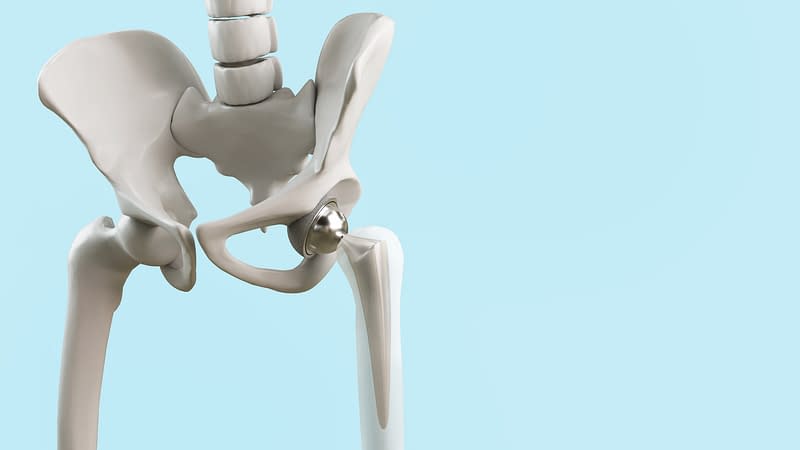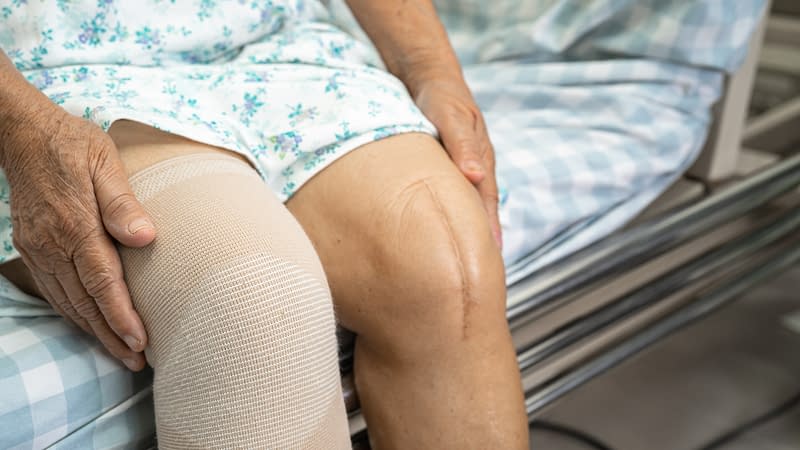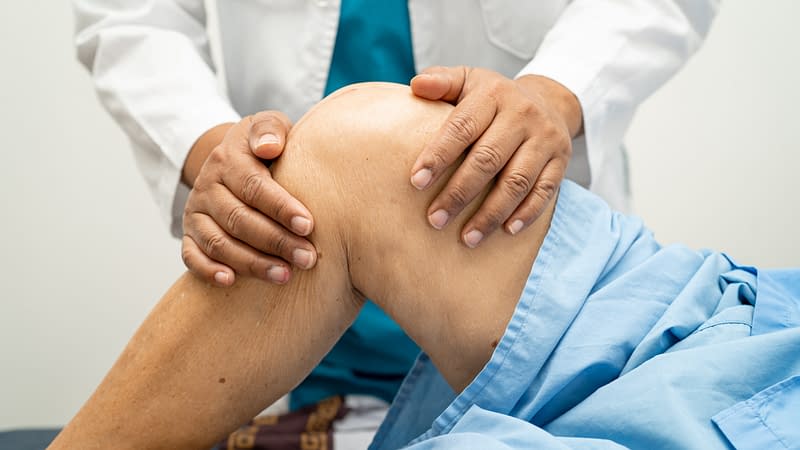Joint replacement surgery is a common procedure aimed at relieving pain and restoring function in joints severely affected by arthritis or injury that is not responding to conservative management such as physiotherapy. If you are considering a joint replacement, it is important to understand what it is, the risks involved and how it can help you. Your surgeon should also discuss all this information with you prior to making your decision.
What are the most common joint replacements?

The most frequently replaced joints are the hip and knee. Hip replacements are usually performed to address severe arthritis or fractures, while knee replacements are commonly done to alleviate pain from osteoarthritis. Joint replacements are very common nowadays and you likely know at least one person who has had one!
What is the average age for joint replacement?
Traditionally, joint replacements were associated with older adults. However, recent trends indicate that younger individuals are opting for these surgeries.
The average age of hip replacement in the UK in 2016 is between 67-70 years old. Of these, 90% of hip replacements were done for osteoarthritis and 60% of recipients were female (3).
Can you have arthritis in a joint replacement?
The replaced surfaces are not bone, therefore cannot develop arthritis. Proper post-surgical care and regular check-ups are essential to monitor the condition of the implant and surrounding structures. While joint replacements can significantly improve quality of life, awareness of potential complications, including arthritis in surrounding tissues, is important (1).
How many years do joint replacements last?
Because joint replacements last so long and the implants and surgery are constantly evolving, we don’t have definitive conclusions about how long joint replacements last.
There has been some research that shows that three quarters of hip replacements will last at least 15 years, with approximately half of hip replacements lasting 25 years (3).
Is joint replacement a major surgery?
Joint replacement is major surgery. It involves removing a damaged joint and replacing it with a prosthetic implant, requiring general anesthesia and a significant rehabilitation period of many months to a year depending on the individual and the surgery. Patients should discuss potential risks and benefits with their healthcare provider to make an informed decision. While joint replacement surgeries are generally safe, they carry risks, including infection and blood clots, necessitating careful patient selection and perioperative management (2).

What are the problems with joint replacement?
While joint replacements can significantly improve quality of life, there are always potential complications which include:
- Infection
- Blood clots
- Implant wear or loosening over time
- Persistent pain or stiffness
A comprehensive review showed that while joint replacements are effective, awareness of potential systemic complications is crucial for optimal patient outcomes. The study found that the most common systemic medical complication following arthroplasty was venous thromboembolism (type of blood clot), with rates varying by joint type. Having pre-existing health conditions before undergoing a joint replacement procedure is the most significant factor that increases the risk of both dying after surgery and experiencing other medical complications throughout the body (1).
What are the most common joints for arthritis?
Osteoarthritis commonly affects weight-bearing joints such as the knees, hips, and spine. However, arthritis can impact any joint, including those in the hands and shoulders. The choice of joint replacement depends on the severity of arthritis and its impact on the individual’s daily life.
How do you know if you need joint replacement?
While physiotherapy cannot reverse osteoarthritis, there is excellent research showing that physiotherapy can manage or decrease the symptoms of osteoarthritis as well as increasing function. As joint replacement is a major surgical intervention, it is almost always recommended to first trial conservative measures like physiotherapy for at least 3 months. Even if there are not significant changes in symptoms after a period of physiotherapy, building strength and control around your osteoarthritic joints improves your ability to recover from surgery.
Many people will consider a joint replacement if they have:
- Persistent pain not relieved by conservative treatments (e.g. physiotherapy, pain medication)
- Significant loss of joint function
- Joint deformity

An evaluation by an orthopaedic specialist, including imaging studies and a review of medical history, is essential to determine if joint replacement is the appropriate treatment option. Patient-reported outcomes and functional assessments are vital in determining the necessity for joint replacement surgery (2).
Post-operative physiotherapy is also extremely important to see the maximum benefits from your joint replacements. Often there is a reduction of strength prior to joint replacement due to pain and reduced function. While joint replacement can improve the pain from osteoarthritis, it does not re-strengthen the muscles around the joint. In fact, muscular strength and control are weakened by surgery and require several months to a year of rehabilitation to regain maximum function.
A personalised approach to joint pain relief
The journey towards pain relief and improved function is a personal one. While joint replacement surgery represents a significant step, educating yourself with knowledge about the procedure and implant longevity is key.
Ultimately, a thorough consultation with your orthopaedic specialist, coupled with consideration of conservative treatments like physiotherapy, will help you determine if joint replacement is the right path towards pain relief and improved function.
Book an appointment
References:
Curlewis K, Leung B, Sinclair L, Thornhill C, Chan G, Ricketts D. Systemic medical complications following joint replacement: a review of the evidence. Ann R Coll Surg Engl. 2023;105(3):191-195. doi:10.1308/rcsann.2022.0012
Patient-reported outcomes and functional assessments as key indicators for joint replacement surgery. J Rheumatol. 2021;48(3):400-408.
Hernigou P, Flouzat-Lachaniette CH, Delambre J, et al. How long does a hip replacement last? A systematic review and meta-analysis of case series and national registry reports with more than 15 years of follow-up. Lancet. 2018;392(10158):2746-2757. doi:10.1016/S0140-6736(18)31665-9